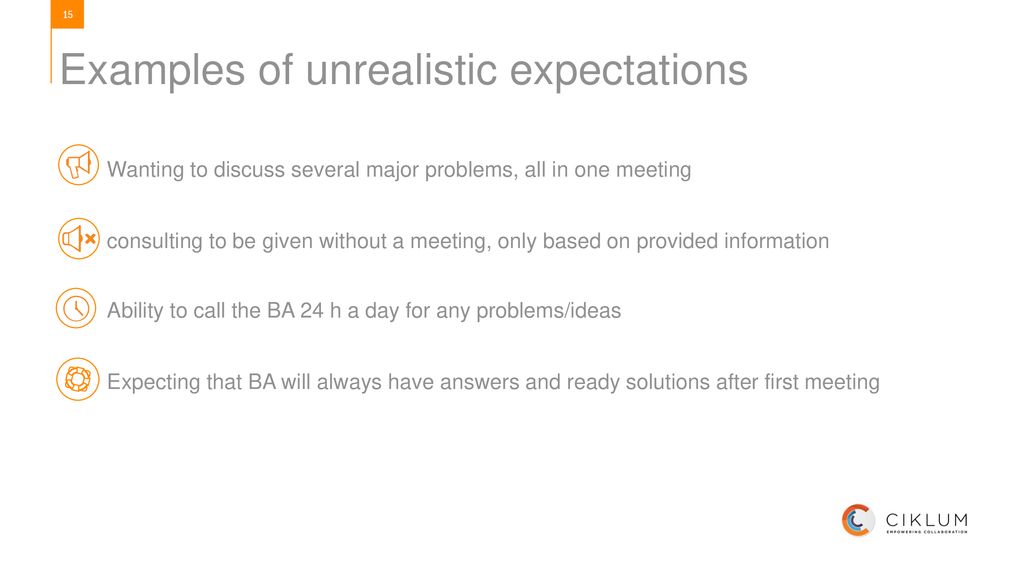Examples Of Unrealistic Expectations At Work

The modern workplace, often lauded for its innovation and dynamism, is increasingly becoming a breeding ground for unrealistic expectations. Employees across various sectors are buckling under the weight of demands that stretch far beyond reasonable limits, leading to burnout, decreased productivity, and a significant decline in overall well-being.
This article delves into the pervasive problem of unrealistic expectations in the workplace, exploring the specific types of demands placed on employees, the consequences of these pressures, and potential pathways toward a healthier and more sustainable work environment.
Defining the Unrealistic: Beyond the Scope of the Job
At its core, an unrealistic expectation is any demand placed on an employee that is unsustainable, unattainable, or significantly detrimental to their mental or physical health. This can manifest in various forms, often exceeding the boundaries of a clearly defined job description.
One common example is the expectation of constant availability. With the proliferation of smartphones and remote work, employees are often expected to be responsive to emails and messages around the clock, blurring the lines between work and personal life.
This "always-on" culture, fueled by the fear of missing out and the pressure to prove dedication, leads to chronic stress and sleep deprivation, ultimately impacting performance and increasing the risk of burnout, according to a 2023 study by the American Psychological Association.
The Myth of the "Ideal" Employee
Another unrealistic expectation centers around the notion of the "ideal" employee: someone who is not only highly skilled and productive but also endlessly enthusiastic, adaptable, and willing to sacrifice personal needs for the sake of the company.
This ideal, often promoted through company culture initiatives and performance reviews, places immense pressure on individuals to conform to an unattainable standard. This pressure can lead to employees masking their struggles, avoiding taking necessary time off, and ultimately feeling inadequate and undervalued.
Furthermore, the expectation of multitasking and handling multiple projects simultaneously, despite evidence suggesting its inefficiency, is a persistent problem. According to research from Stanford University, multitasking significantly impairs cognitive function and reduces overall productivity.
The Impact: Burnout and Beyond
The consequences of these unrealistic expectations are far-reaching. Burnout, characterized by emotional exhaustion, cynicism, and a sense of reduced accomplishment, is a major concern.
Studies have shown a direct correlation between unrealistic workloads and increased levels of stress hormones like cortisol, which can contribute to a range of health problems, including cardiovascular disease and weakened immune systems.
Beyond individual health, unrealistic expectations negatively impact organizational performance. High employee turnover, reduced innovation, and a decline in the quality of work are all potential outcomes.
Finding Solutions: Re-evaluating Workplace Culture
Addressing the issue of unrealistic expectations requires a multifaceted approach, starting with a critical re-evaluation of workplace culture. Companies need to foster an environment that values work-life balance, encourages open communication, and promotes realistic goal setting.
Clear job descriptions and well-defined roles are crucial. Management should avoid adding tasks that aren't included in this description or appropriately compensating people when they do. It is essential for employers to create a fair and reasonable work environment.
Leadership training is also vital to equip managers with the skills to effectively delegate tasks, provide constructive feedback, and recognize the signs of employee burnout. The promotion of mental health resources and support programs can further contribute to a healthier work environment.
Furthermore, employees themselves need to be empowered to set boundaries and advocate for their needs. Open dialogue with managers and colleagues can help to challenge unrealistic expectations and create a more sustainable workload.
Looking Ahead: A Future of Realistic Expectations
Ultimately, creating a workplace free from unrealistic expectations requires a fundamental shift in mindset. It demands a move away from the relentless pursuit of unattainable goals and towards a more human-centered approach that prioritizes employee well-being and sustainable productivity.
By fostering open communication, promoting work-life balance, and empowering employees to set boundaries, organizations can create a work environment where individuals can thrive, both professionally and personally. This will lead to a more engaged, productive, and ultimately successful workforce.


















